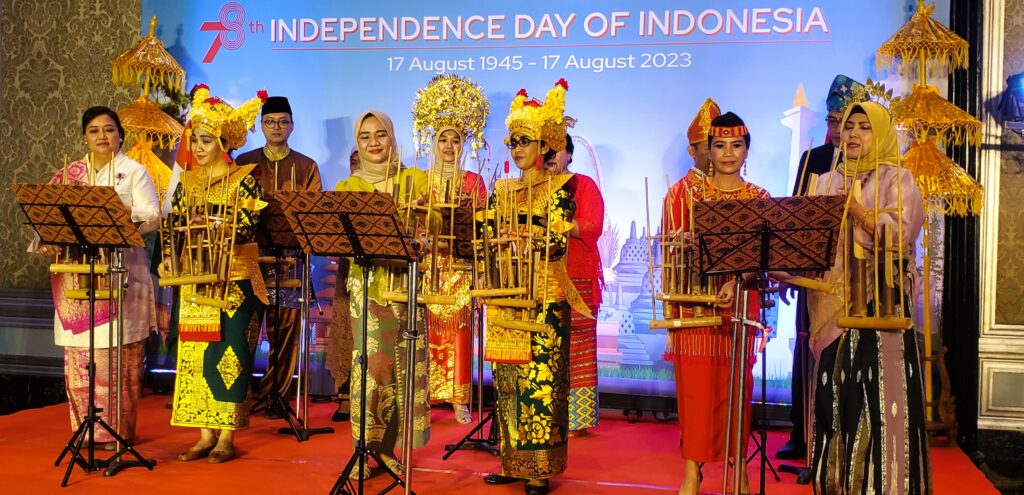COLLABORATE WITH WISDOM FOR GROWTH
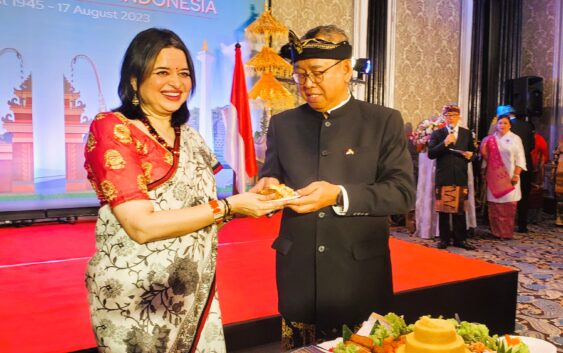
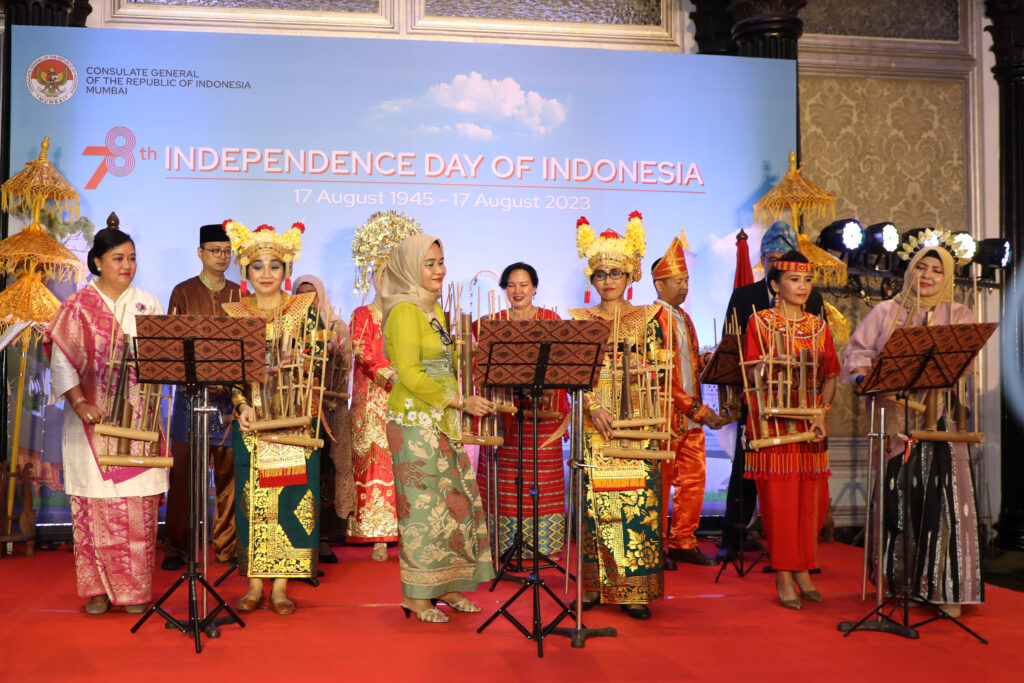
The 78th Indonesian Independence Day Diplomatic Reception was an awe-inspiring and culturally-rich experience! This special occasion was a celebration of Indonesia’s rich history, unique traditions, and strong diplomatic ties with other countries. There were colorful performances of traditional Indonesian dances, enjoyed delicious Indonesian cuisine, and mingled with prominent Indonesian and Indian diplomats and representatives from various foreign embassies. It’s wonderful to see nations coming together to honor and appreciate each other’s cultures. The festival not only commemorates a significant milestone in Indonesian history, but it also highlights the two countries’ strengthening diplomatic connections and mutual respect.
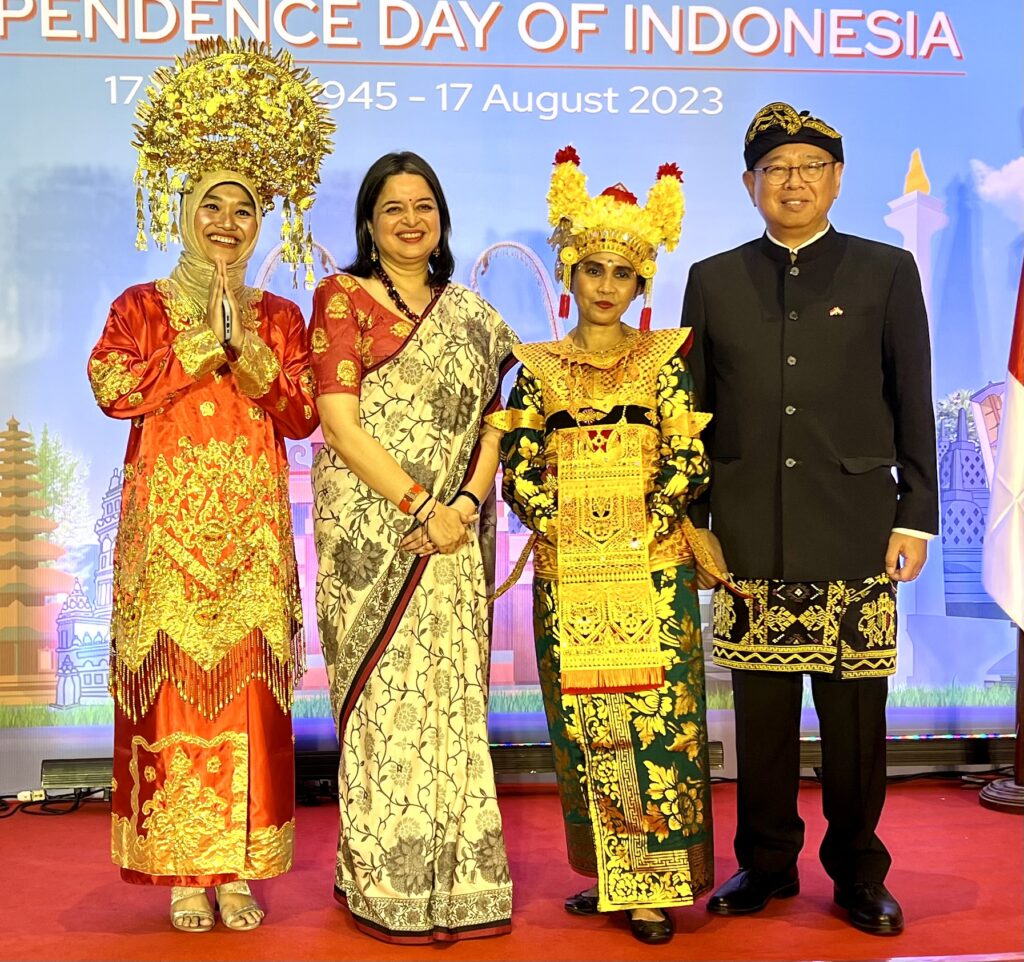
The Consulate-General of the Republic of Indonesia in Mumbai, His Excellency Edy Wardoyo, hosted a reception to commemorate the 78th Proclamation of Independence of the Republic of Indonesia. The event was held at the Taj Mahal Palace Hotel on October 26, 2023. Indonesia’s 78th anniversary is on August 17, 2023. Manisha Mhaiskar, Principal Secretary and Chief Protocol Officer for the Maharashtra Government, was the Chief Guest.
Indonesia Independence Day is a national holiday celebrated on August 17 each year. The occasion commemorates Indonesia’s declaration of independence from the Netherlands in 1945.
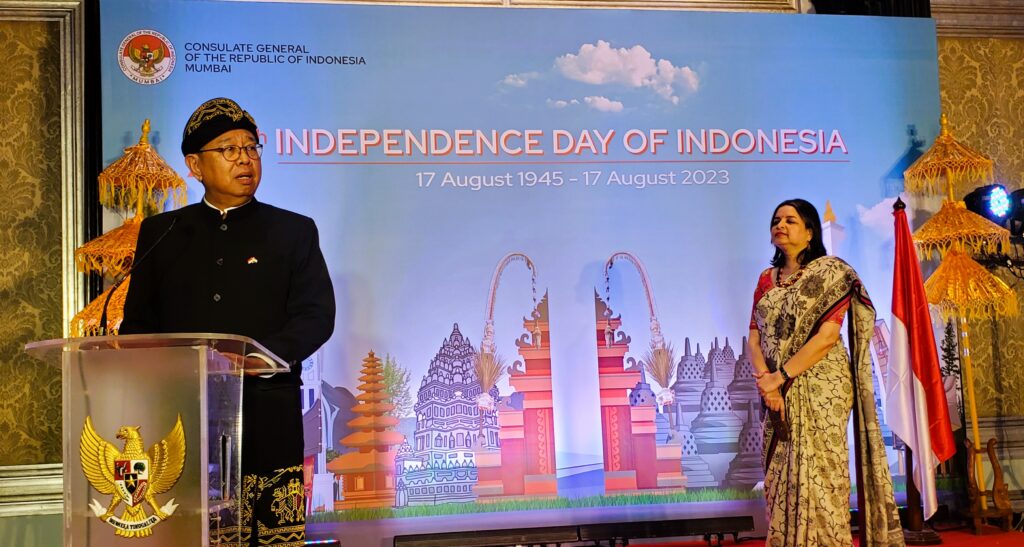
“This year’s Independence Day national theme “Terus Melaju Untuk Indonesia Maju” (Striving to Progress Indonesia) embodies the spirit of gotong royong (collaboration), togetherness to accelerate the country’s growth, while maintaining local wisdom. All these messages are often found in the nation’s local sports like sepak takraw and badminton, or Tujuhbelasan-specific games like sack races, cracker eating competitions, and panjat pinang.”
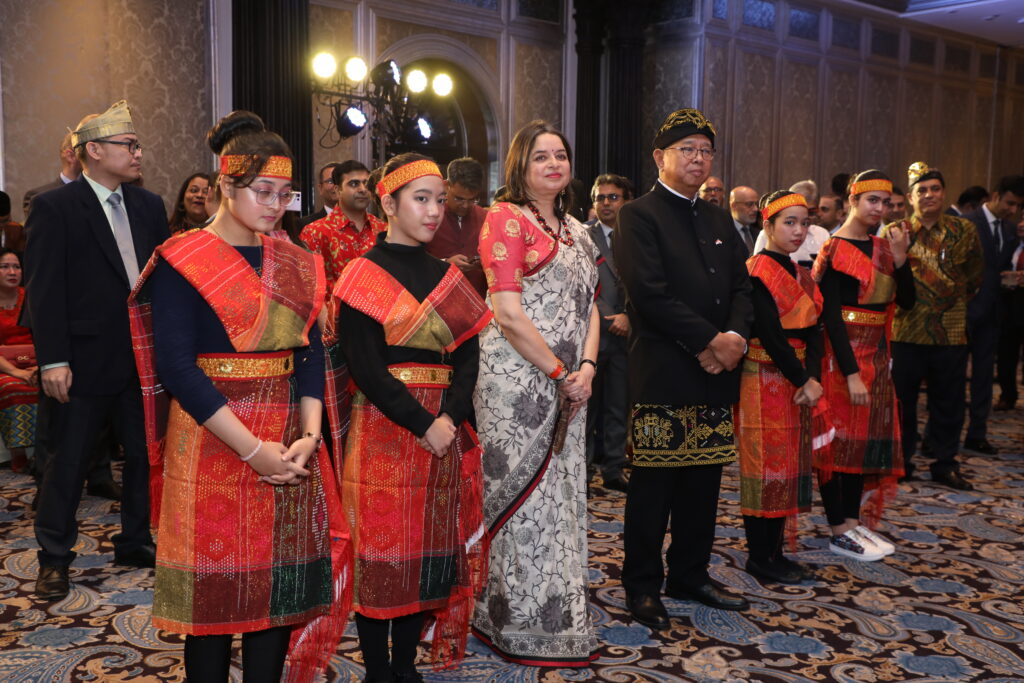
In his welcoming remarks, His Excellency Edy Wardoyo, Consul-General of the Republic of Indonesia in Mumbai, emphasised the strong relations that were recently demonstrated by the smooth handover of the G20 Presidency from Indonesia to India, and then congratulated the Indian Government on its success as G20 President.
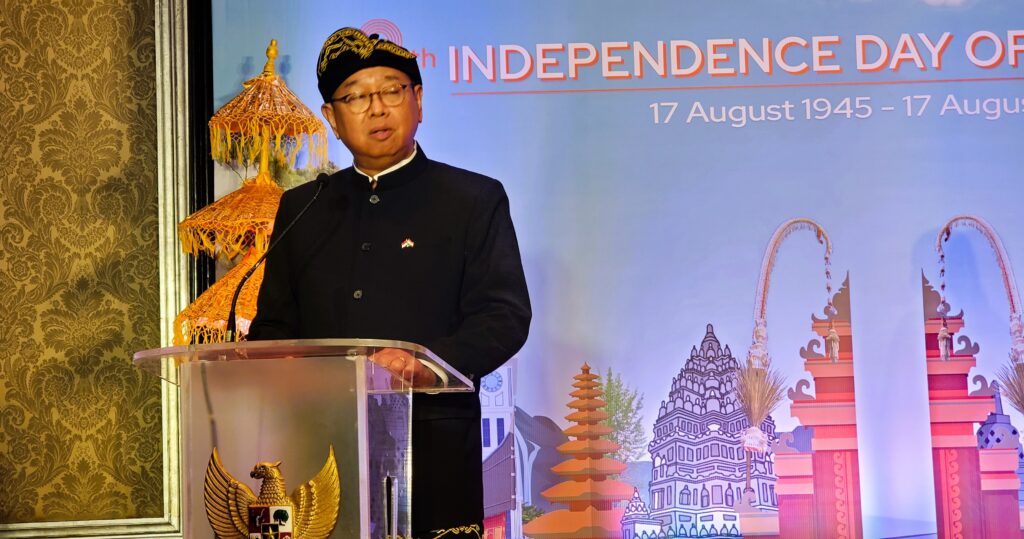
He reflected on the long history of friendship between the two countries, which is evidenced by ancient monuments such as the massive Buddhist temple of Borobudur and the sprawling Hindu compound of Prambanan, both in Central Java and both with unmistakable signs of Gupta architecture from India’s Gupta Empire at the time. Meanwhile, the Ramayana Epic mentions Swarnadwipa in modern-day Sumatra and Javadwipa, which relates to the island of Java in modern-day Indonesia.
The C.G. also cited the Bali Jatra, or “Journey to Bali” celebration, performed annually in Cuttack, Odisha, as evidence of previous Indian journeys to Sumatra and beyond. The knowledge route is even older, with the remnants of Nalanda University in present-day Bihar. Visitors can still see an old building built by King Srivijaya of South Sumatra around the 7th century to house students from Java and Sumatra, whom he encouraged to learn Sanskrit and other sciences at Nalanda University.
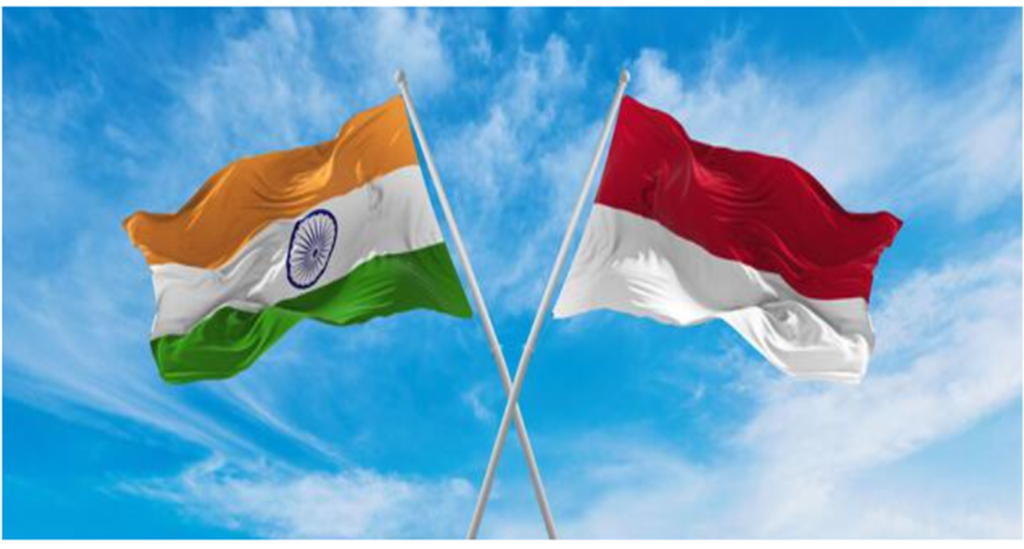
In Indonesia, Independence Day begins with a live broadcast from the State Palace. Marching bands march through Jakarta in the presence of the president and national heroes, followed by a gun salute from the military. During the ceremony, Indonesians display the red and white national flag. Red represents assertiveness, whereas white denotes honesty.
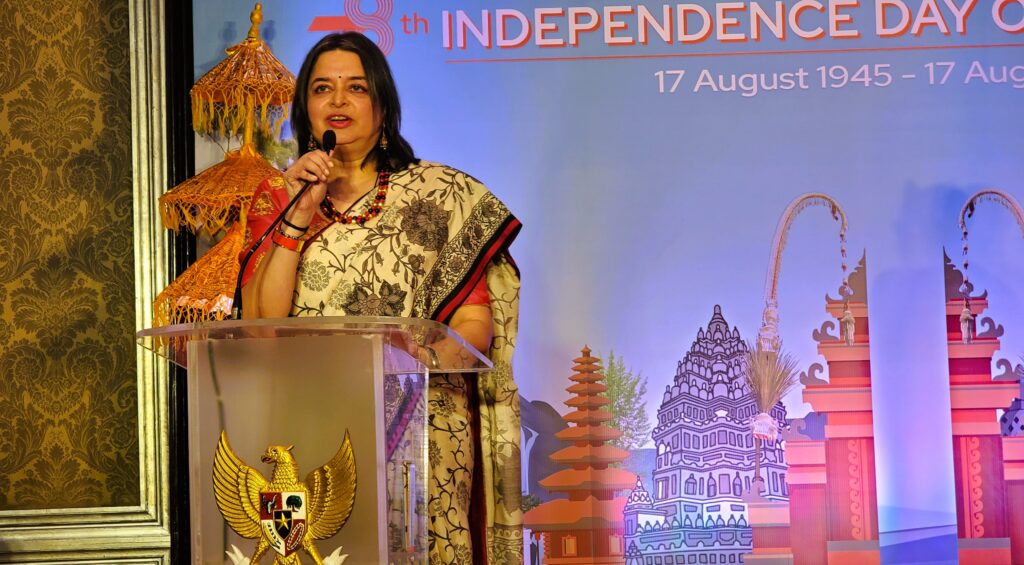
As the Chief Guest, Manisha Mhaiskar, Chief Protocol Officer of the Government of Maharashtra, mentioned the historical connection between the Ramayana Epic and Indonesia. In the Javanese version, Sita is more strong towards her kidnappers, the Rahwanas. Ms Mhaiskar reminds out that the word “Indonesia” is how early Europeans referred to the archipelago, which they thought was named “Indus Nessos” or “the Indian Islands”.
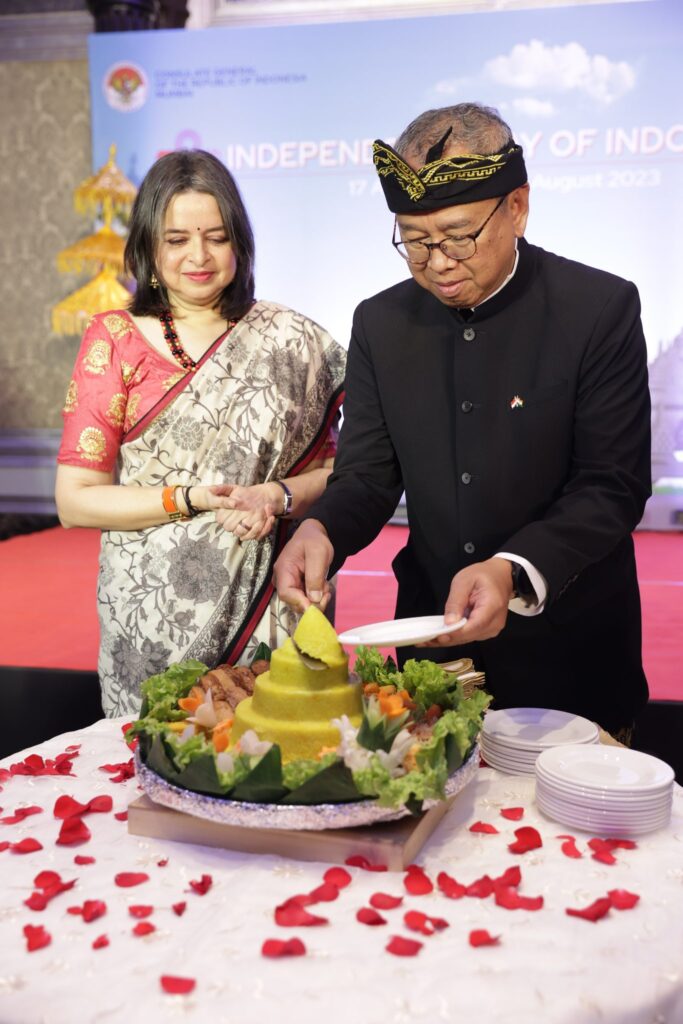
The formal programme concluded with the cutting of the traditional Nasi Tumpeng, which is fashioned like a mountain and represents the strong roots of bilateral relations. That evening, guests were treated to cultural and artistic performances, including the Tor-Tor Dance from North Sumatra, the Legong Keraton Dance from Bali, and two popular songs performed by the Indonesian Consulate personnel and their spouses.
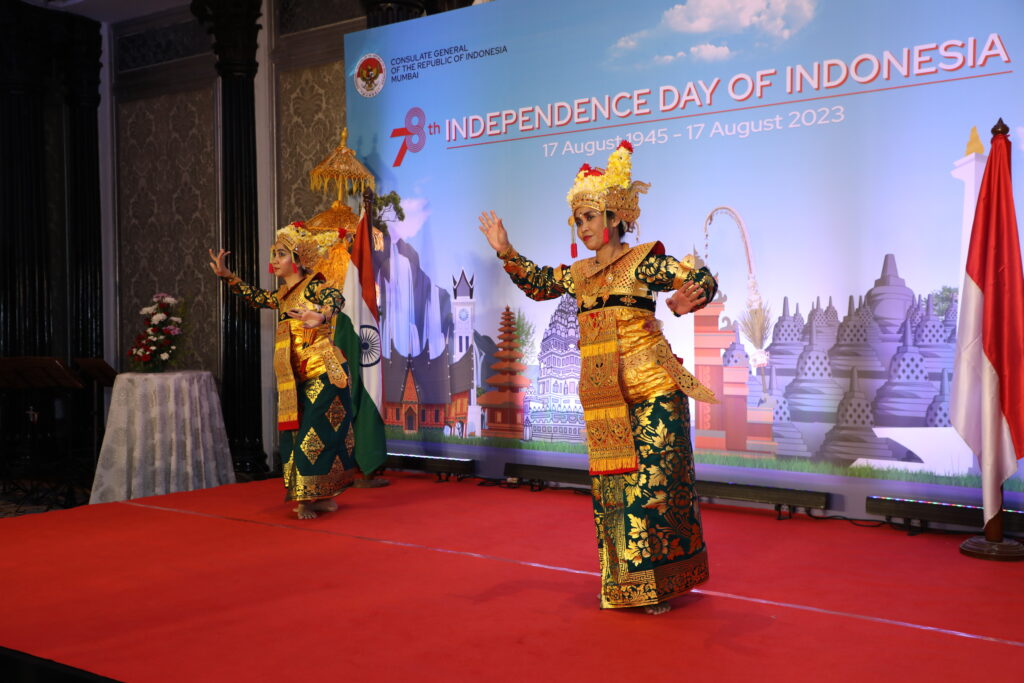
The longest portion of the evening was spent following the presentations, when attendees tucked into a buffet feast of Indian and Indonesian cuisine. Indonesian specialties included Kue Lapis Legit, Martabak Telur, Kacang Bali, Ketan Serundeng (vegetarian), Nasi Goreng, Sate Ayam, Sate Kambing, Bakso Ayam, and Es Cendol.
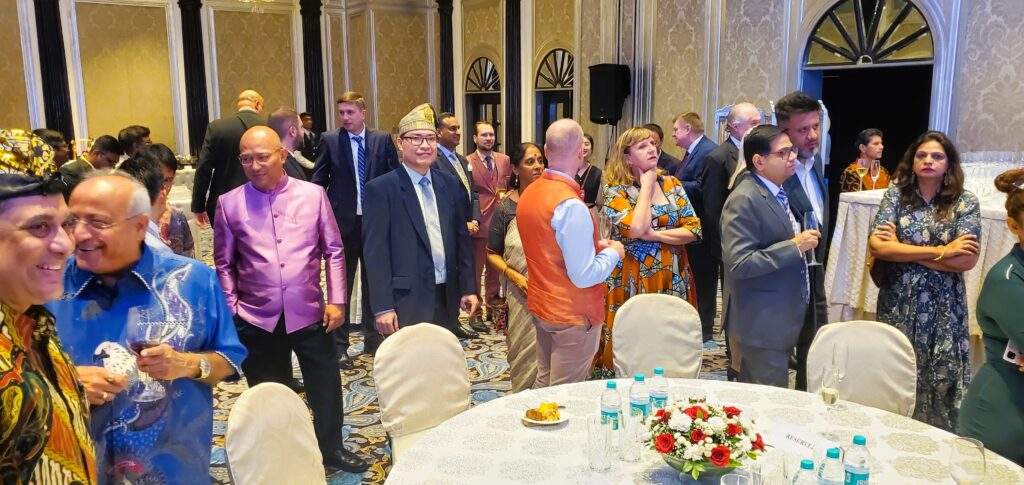
Representatives from businesses, organisations, and groups in Mumbai and southern India who have had significant and ongoing engagement with their Indonesian counterparts attended the event. Notable Friends of Indonesia were also invited, as did Indians who had participated in cultural programmes in which they remained in Indonesia for many months to immerse themselves in local customs and cultures.
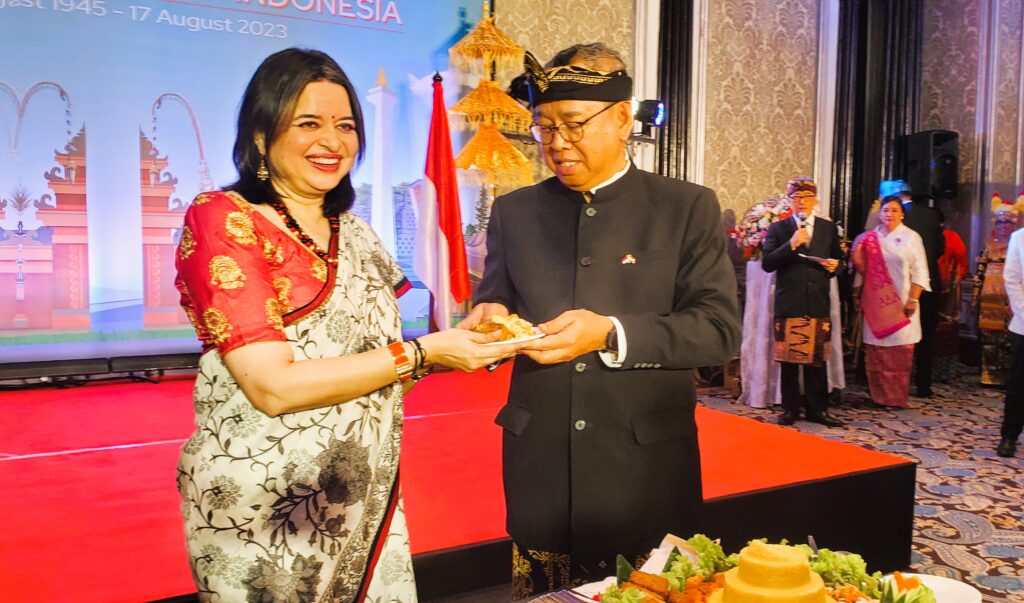
The longest portion of the evening was spent following the presentations, when the visitors tucked into the buffet meal of Indian and Indonesian cuisine. Indonesian specialties included Kue Lapis Legit, Martabak Telur, Kacang Bali, Ketan Serundeng (vegetarian), Nasi Goreng, Sate Ayam, Sate Kambing, Bakso Ayam, and Es Cendol.
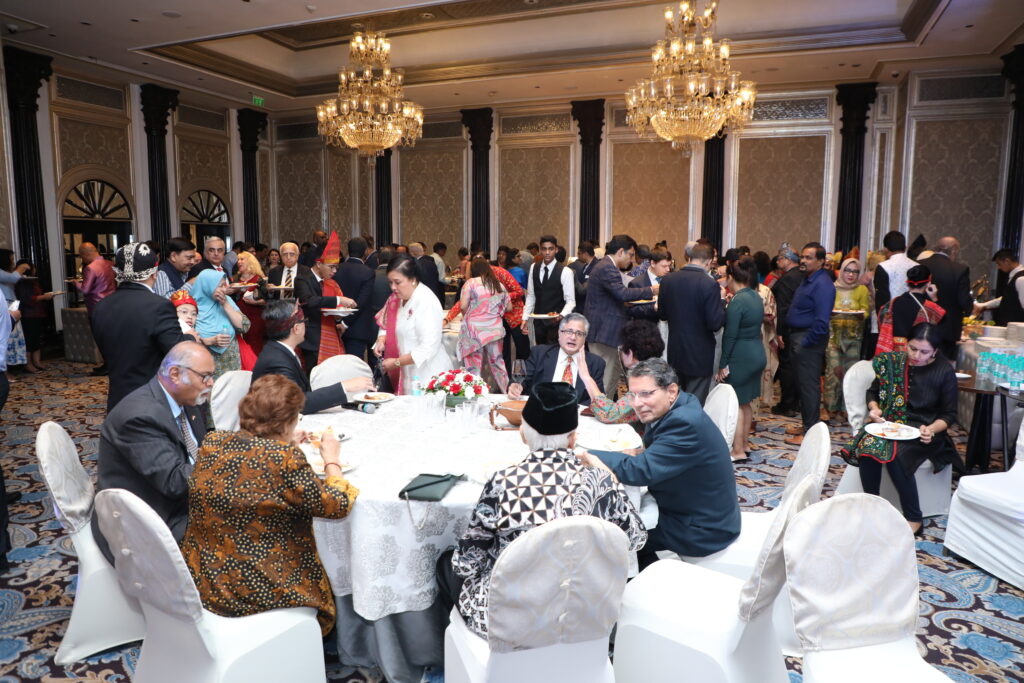
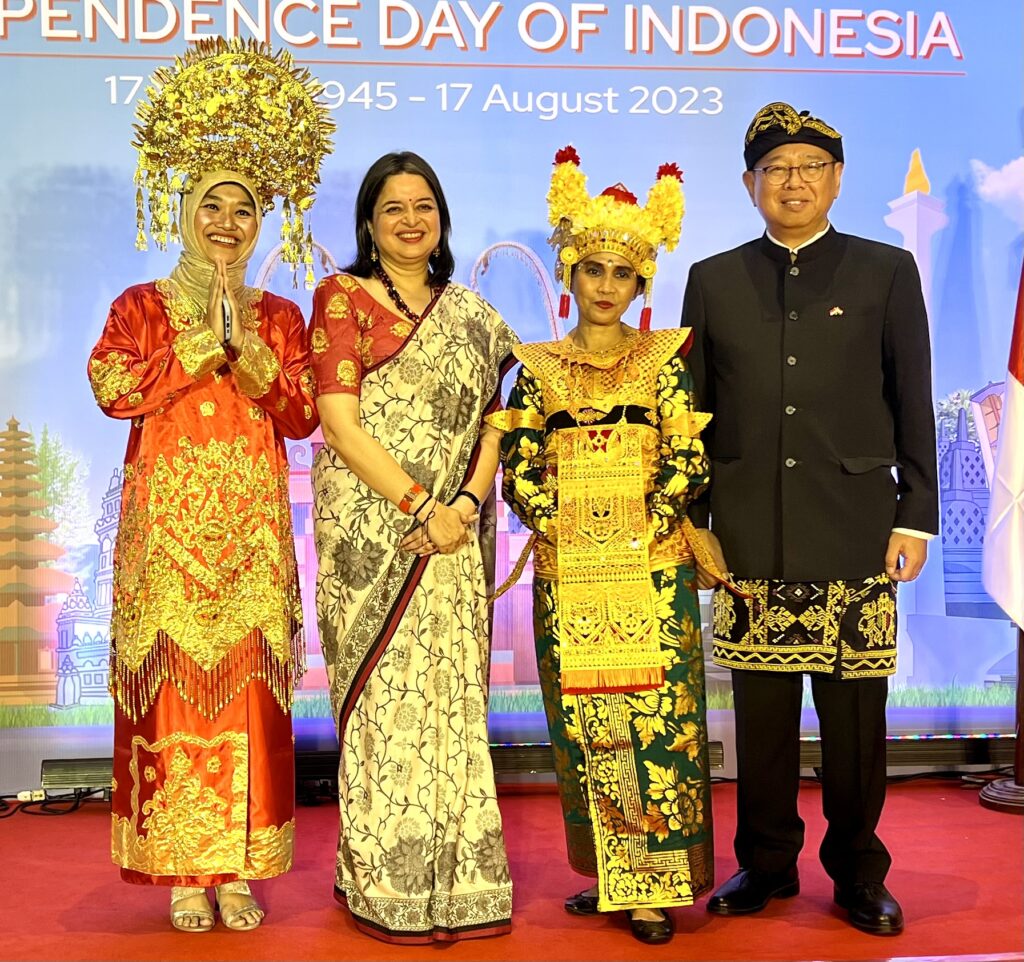
As the two largest nations in their respective parts of the world, India and Indonesia are regional leaders with a long history of good connections and leaders determined to continue those links going towards a synergy of like-minded countries.
